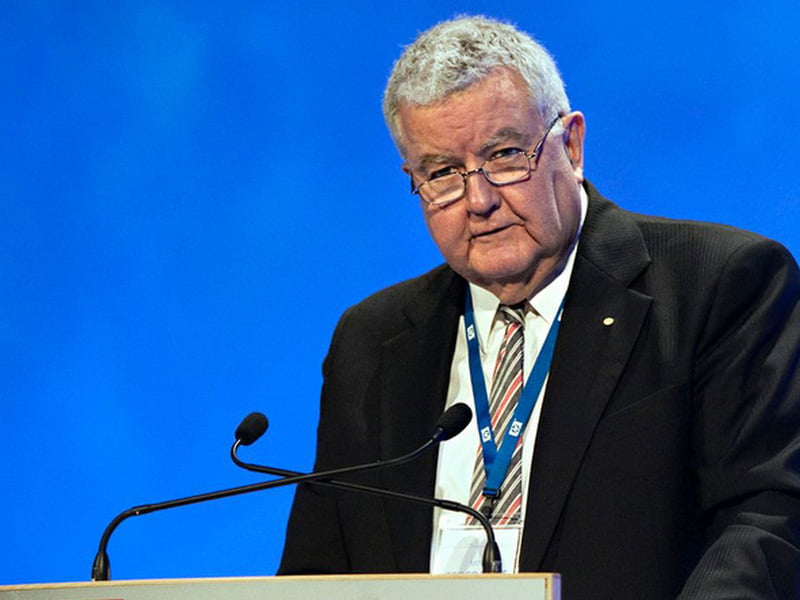Former Australian and state chief scientists have warned the post-pandemic recovery risks being squandered because of a lack of leadership, and called for a bolder and more coherent approach to innovation and the economy.
Former Australian chief scientist Ian Chubb said the country must shed its historically risk averse ‘she’ll be right’ approach for a bolder and more targeted tilt at nation building in the wake of COVID-19.
“Australia has comparative advantages, which you can turn into competitive advantage. But to do that you got to be willing to take a risk,” Professor Chubb said.
“You’ve got to be willing to assess the risk and manage your risk. And I don’t think that we’re good at that and certainly our political leadership, overall … I don’t think gives me great confidence that they have the capacity to think like that.”

Speaking at an Australian Academy of Technology & Engineering webinar last week, Professor Chubb backed Andrew Liveris’ call for a more complex economy through greater investment in research and development.
Professor Chubb, who served as Australia’s chief scientist from 2011 to 2016, said a strong platform and pockets of excellence exist in Australia, but a fundamental change in approach was needed to move beyond a resource-heavy economy that does not add value to its exports.
“We saw a rusty hill, we turned it into GDP,” Professor Chubb said of Australia’s typical approach.
“When it was empty, we went and found another rusty hill. And we turn that into [GDP]. And so there’s this sort of complacency abroad, and it’s in a political framework particularly, where all you have to do is to encourage a bit more of that and she’ll be right.”
Prof Chubb said both sides of politics had failed to lead this fundamental change, with a series of federal Cabinet’s failing to “think through what is really good and sound” for the nation’s long-term future.
He drew parallels with Australia’s recovery from the Global Financial Crisis – another Black Swan event that presented an opportunity for reform, but which ultimately was not seized.
The former chief scientist said the same would happen with the current pandemic recovery without a new approach.
“We do really need to begin to think through to make sure we don’t squander an opportunity which the change will force us to make [anyway],” Professor Chubb said.
He called for more targeted and scalable funding in areas where Australia has a comparative advantage to develop more sustainable value-add industries.
But he warned political leaders are not stepping up.
“We’re frightened of big things. We don’t think in terms of scale. And we do fund across a very broad range rather than have a coherent strategy and policy with definite vision [and] definite aims,” Professor Chubb said.
“If I were to ask people what is the vision for the country that our leadership now puts out there for us to either agree with disagree with [or] argue about, it’d be hard to find.”
Former Western Australia chief scientist Lyn Beazley pointed to Israel as an example of the bold bets Australia needed to make.
“The [Israel] chief scientist … has a budget about $40 million a year. They pick promising discoveries, and if they succeed, they repay the funds. If it doesn’t work they don’t say they’ve failed. They’ve done fast learning for something else and that’s why we need to be less risk averse,” Professor Beazley said on the same ATSE webinar.
“Until we really engage with that early stage to get an idea to the next stage, then it’s not going to work,” she said.
Professor Beazley, who advised the state government on science, innovation and technology as Western Australia’s chief scientist from 2006 to 2013, said young people’s STEM skills should be developed as quickly as possible
“If you want to work for the big resources company in WA you’re not there digging things up. You’re sitting at a computer controlling something 1,000 kilometres away. So, the faster we go down that route, the better,” she said.
Do you know more? Contact James Riley via Email.


open your eyes, here I am
Professor Chubb is spot on: no leadership, fear of failure. But it is worse than that; constant changes in Ministers, departmental structures and programs – the average life of an STI program is a few years. The resources curse has got us. We need a well-funded Innovation Agency independent of petty and corrupt governments, able to invest, take risks and learn.
We are here delivering the change required for our housing if you want to discuss happy to share some of our experiences.